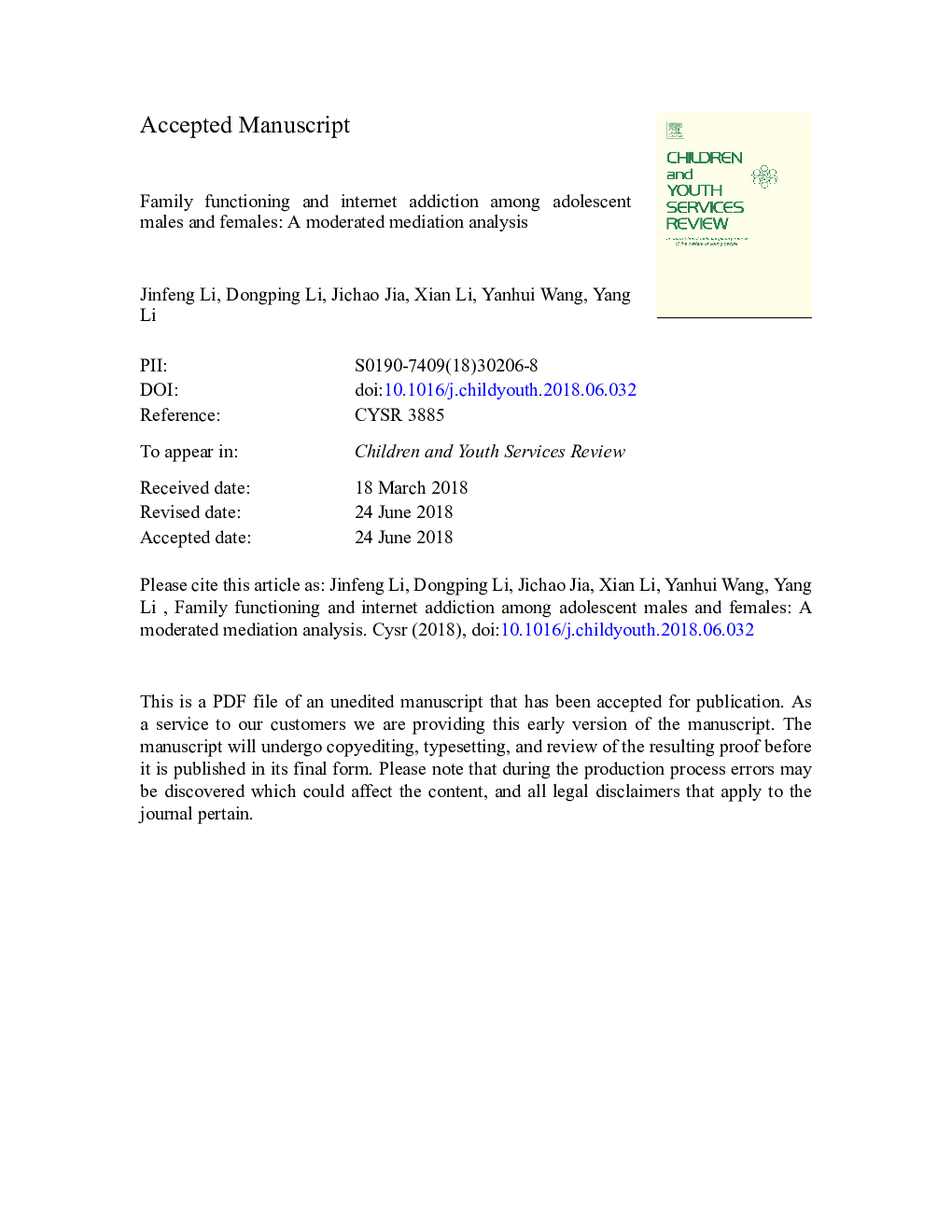| Article ID | Journal | Published Year | Pages | File Type |
|---|---|---|---|---|
| 6832928 | Children and Youth Services Review | 2018 | 44 Pages |
Abstract
Poor family functioning is an established risk factor in adolescent Internet addiction; however, little is known about the mechanisms underlying this relation. Inspired by the ecological model (Bronfenbrenner, 1979), the current study attempts to explain the association between family functioning and adolescent Internet addiction by testing the potential mediating role of deviant peer affiliation and the moderating role of social sensitivity. A total of 863 Chinese adolescents (Mageâ¯=â¯14.34â¯years; SDâ¯=â¯1.66; 45% males) completed anonymous questionnaires regarding demographics, family functioning, deviant peer affiliation, social sensitivity, and Internet addiction. After covariates were controlled, the results indicated that deviant peer affiliation partially mediated the negative relation between family functioning and Internet addiction among both males and females. Additionally, the second part of the indirect link was moderated by social sensitivity among females, such that deviant peer affiliation significantly predicted Internet addiction in females with moderate and high but not low social sensitivity. The moderating role of social sensitivity was not significant among adolescent males. The theoretical and practical implications of these findings are discussed.
Related Topics
Health Sciences
Medicine and Dentistry
Perinatology, Pediatrics and Child Health
Authors
Jinfeng Li, Dongping Li, Jichao Jia, Xian Li, Yanhui Wang, Yang Li,
